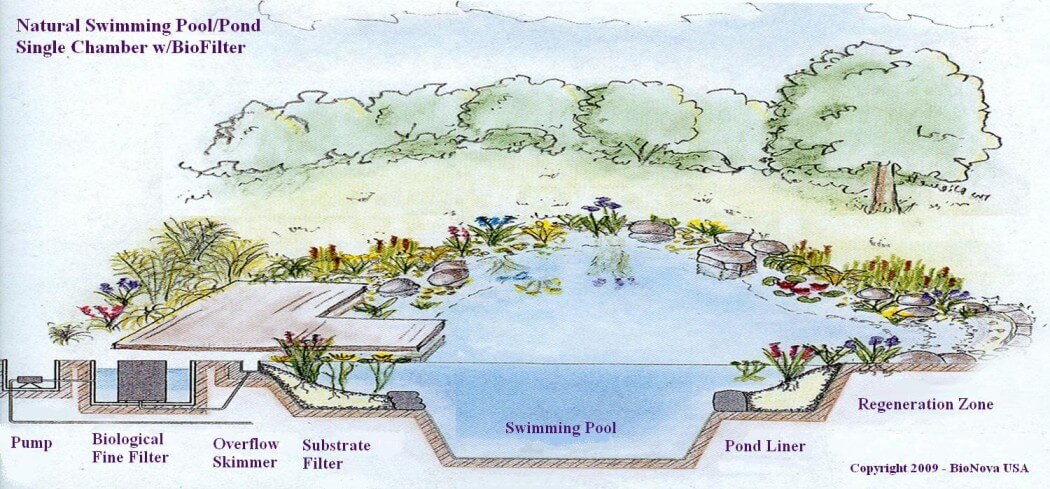Natural pools and gardens in Oman are eco-friendly and sustainable alternatives to traditional swimming pools. As sustainability becomes a priority in modern landscaping, eco-friendly natural pools are gaining popularity.
Why are natural pools more trending?
Unlike traditional chlorine-based pools, natural pools use biological filtration, aquatic plants, and eco-conscious design principles to maintain clean and safe swimming water. This article explores the key components, benefits, and design considerations for creating an eco-friendly natural pool.

What is a Natural Pool?
A natural swimming pool (NSP) is a self-cleaning, chemical-free alternative to conventional pools. It relies on a regeneration zone filled with aquatic plants and beneficial microorganisms that filter and purify the water. These pools mimic natural ecosystems and are visually appealing while maintaining water quality without synthetic chemicals.

Key Components of an Eco-Friendly Natural Pool
- Swimming Zone – The main area for swimming, which is separated from the filtration zone.
- Regeneration Zone – A shallow area with aquatic plants that naturally filter and oxygenate the water.
- Biological Filtration System – A combination of gravel, sand, and plant roots that remove impurities and keep the water clear.

- Natural Pond Liner – Eco-friendly liners made of bentonite clay or EPDM rubber prevent leaks without harmful chemicals.
- Energy-Efficient Pumps & Solar Heating – Low-energy pumps circulate water, and solar panels provide heating while reducing energy consumption.
- Aeration & Water Circulation – Helps prevent stagnation and supports beneficial bacteria growth.
- Native Plants & Wildlife Integration – Supports biodiversity and enhances the natural aesthetic.

Advantages of an Eco-Friendly Natural Pool
- Chemical-Free & Healthier: No exposure to chlorine or synthetic chemicals, reducing skin and eye irritation.
- Low Maintenance & Sustainable: Requires less upkeep than traditional pools and in
- tegrates with the environment.
- Energy & Cost Efficiency: Eliminates the need for expensive chemical treatments and high-energy filtration systems.
- Aesthetic & Biodiversity Benefits: Creates a natural, scenic water feature that supports local wildlife.
- Year-Round Usability: Can double as a wildlife pond during colder months, preserving ecological balance.
Conclusion
An eco-friendly natural pool is an innovative, sustainable alternative to conventional swimming pools. By using biological filtration, native plants, and energy-efficient technologies, homeowners can enjoy a chemical-free, low-maintenance, and aesthetically pleasing water feature. Whether for personal relaxation or environmental sustainability, natural pools offer a harmonious way to integrate swimming spaces into the natural landscape.

